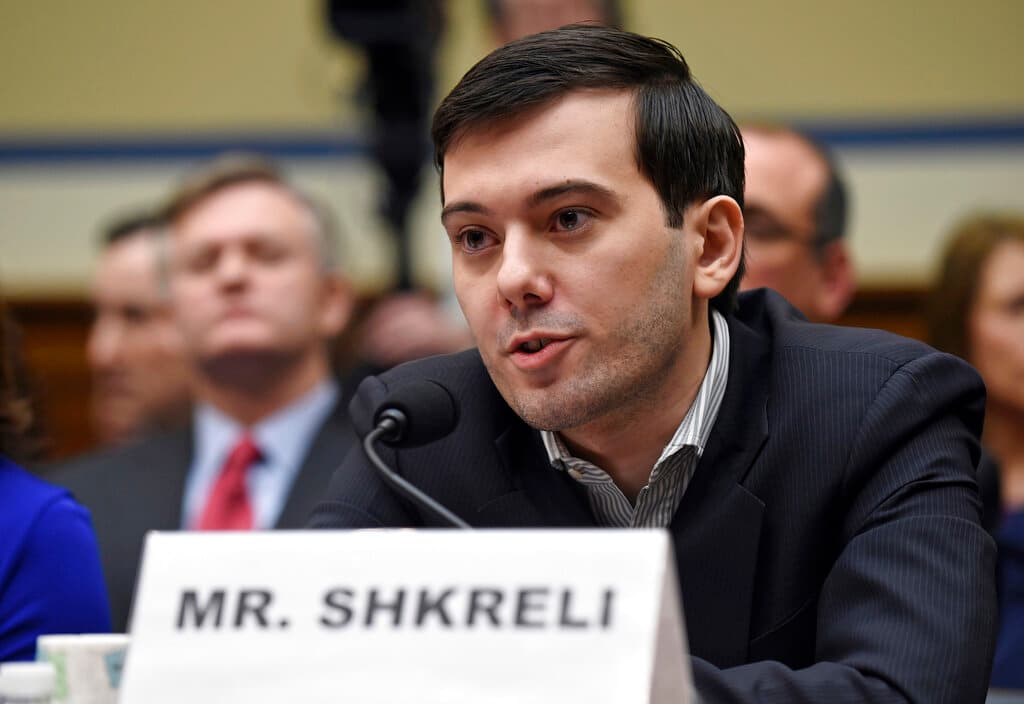Trump Called ‘Pharma Bro’ a ‘Spoiled Brat’; Now He Hopes To Avoid Martin Shkreli’s Fate — Being Banned From Doing Business in New York
The attorney general who pursued both Martin Shkreli and the 45th president seeks to polish her prestige by banning them both from business.

President Trump’s political fortunes are rising, but a sword of Damocles hangs over the New York business empire that catapulted him to fame and paved his way to fortune.
New York’s attorney general, Letitia James, is coaxing down its blade. She has already convinced Judge Arthur Engoron to rule that Mr. Trump and his family committed “persistent fraud” and to revoke their licenses to do business in New York. An appeals court suspended the revocation while Ms. James’s case moved forward.
Any day now, Judge Engoron, whom Mr. Trump’s legal team has accused of persistent bias, is expected to issue a final ruling that could be adverse to Mr. Trump, possibly catastrophically so. Ultimately, the case appears like it will be decided on appeal.
As Judge Engoron mulls his ruling, enter stage right a disgraced pharmaceutical executive, Martin Shkreli.
In a letter to Judge Engoron urging him to ban the Trumps from New York’s real estate community — and to issue a penalty of more than $350 million — Ms. James’s office cites the fate of another notorious New Yorker, the disgraced Shkreli, whose lifetime ban from the pharmaceutical industry was just this week affirmed by the United States Court of Appeals for the Second Circuit. Ms. James was no bystander to Shkreli’s case — she brought it, together with the Federal Trade Commission, in 2020.
The suit arose from Shkreli’s time as the chief executive of Vyera Pharmaceuticals. He was found liable for monopolistic abuse by hiking the price of a medication used to treat HIV, Daraprim, by more than 5,000 percent, and then engaging in anticompetitive practices. That earned him the sobriquet “Pharma Bro.” Ms. James said at the time that “envy, greed, lust, and hate” motivated him to “illegally jack up the price of a life-saving drug.”
The trial court agreed, and so did the Second Circuit, finding that “given Shkreli’s pattern of past misconduct, the obvious likelihood of its recurrence, and the life-threatening nature of its results, a ban enjoining him from ‘participation in the pharmaceutical industry for life’” possessed a solid basis. It found his arguments to be “without merit.”
Like Mr. Trump, Shkreli has faced both civil and criminal charges. In 2017, he was convicted of criminal fraud for misleading investors in a hedge fund he ran (this correspondent worked on the government’s trial team in that case). The Department of Justice then seized one of his prize possessions, the sole copy of “Once Upon a Time in Shaolin,” by the Wu-Tang Clan. It had previously been stored in a vault at the Royal Mansour Hotel at Marrakech.
Shkreli was sentenced to seven years in prison, and released in 2022. That same year is when his civil penalty — the lifetime ban and a disgorgement of more than $64 million — was imposed. The presiding judge, Denise Cote, wrote that in “finding a violation under Executive Law §63(12)” — that is the same law under which Mr. Trump was found liable — “a court may exercise its discretion to issue a permanent and plenary ban in a particular industry.”
While the decision whether to follow in Judge Cote’s footsteps will be up to Judge Engoron, any decision he makes is likely to be appealed, and possibly stayed during that appeal. Earlier this fall, the judges of the Appellate Division, First Department, who oversee Judge Engoron, declined Mr. Trump’s invitation to halt the fraud case.
Mr. Trump and Shkreli have had a hot and cold history. After Shkreli was found liable for the price hike on Daraprim, Mr. Trump called him a “spoiled brat to me.” Nevertheless, in 2016, Shkreli tweeted, “I support him vs. Hillary. He should find a VP candidate who is seasoned in politics, an ugly game.”

